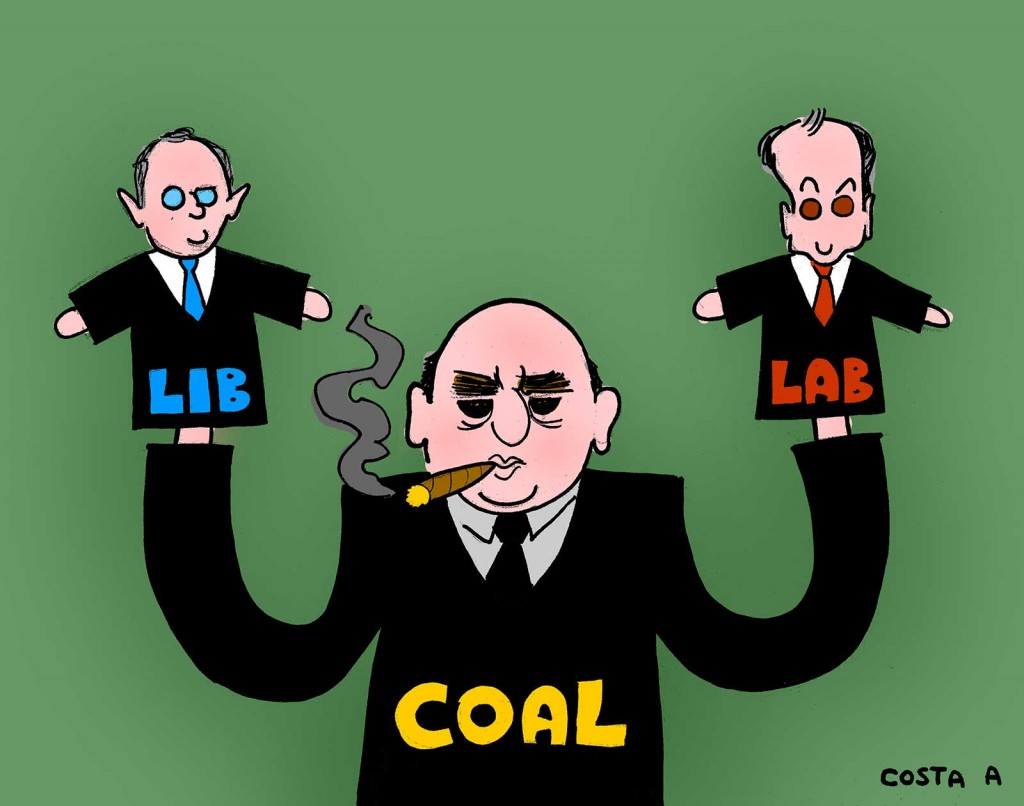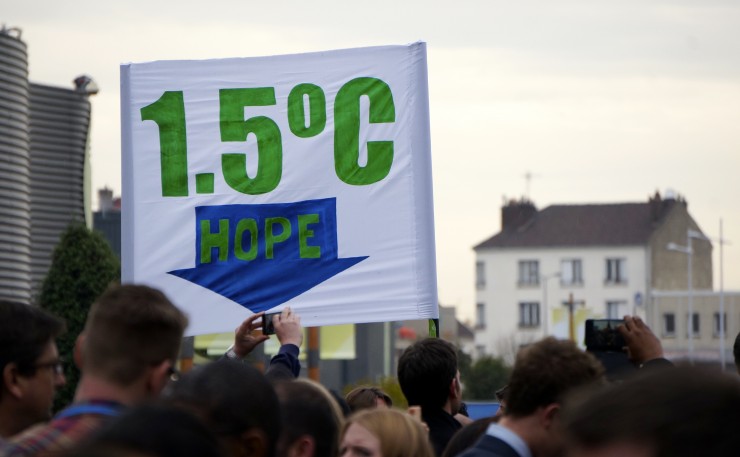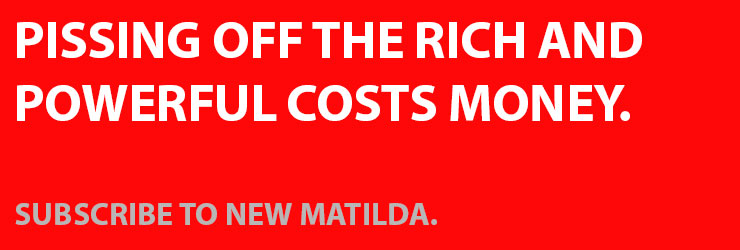Both parties are ignoring the big, coal-coloured elephant in the room. With the world speeding towards a tipping point, action can not wait for the next election cycle to begin, writes Costa Avgoustinos.
Climate change is the number one issue this election, whether Turnbull or Shorten are willing to frame it that way or not. This is not only because averting climate disaster is important. It’s because our ability to do so is time-sensitive – after decades of delay the window for effective climate action is closing rapidly and will soon shut forever.
Here is a quick and dirty summary of the climate science: If the world heats up 1.5°C, we’re screwed.
Why? Because it is expected at this “tipping point”, how hot things get begins to significantly fall from our control. A series of events we have no power over are triggered once 1.5°C is breached – for example, the ability of oceans and forests to absorb our carbon emissions are substantially exhausted and greenhouse gases currently trapped under ice start being released.
We may soon be placed in a position where all we can do is powerlessly watch as temperatures climb to Mad Max levels; where sea rises will gobble at our coasts (where 85 per cent of Australians live), food and water sources are devastated, heat-thriving diseases are incubated, and conflicts and a meaner streak of politics are inevitable.
Because politicians are not taking the task of staying below the Paris Agreement target of 1.5°C seriously, many predict we are “locking in” temperature rises of 4°C, which Professor John Schellnhuber, one of the world’s most influential climate scientists, bluntly stated at a conference in Australia would threaten nothing less than “human civilisation”.
The World Bank, hardly an organisation of tree huggers, stated “all our work, all our thinking, is designed with the threat of a 4°C degree world in mind” with the unnerving warning that there is “no certainty that adaptation to a 4°C world is possible”.
Temperature rises of 4°C are not expected in some distant future, either. Many predict 4°C will be reached by 2100, but some suggest it could be as early as the 2050s. That is, if not in your lifetime, then the lifetime of your children.
This is why the 2010s are called the “critical decade”. We have delayed reducing carbon emissions for 25 years and now we are dangerously close to 1.5°C – in fact, NASA confirmed the 1.5°C mark was breached for the first time in February 2016. There is no time left for delay. The decisions made by our leaders (in Australia and elsewhere) in the next few months and years will have a significant impact on determining if catastrophic levels of climate change are averted or rendered irreversible.
This is not like any other issue where, if Party X gets in, their policies can be undone the next time Party Y gain power. Our window for effective climate action is only open for a brief amount of time. What is done in the next three years is crucial.
So why isn’t this the number one issue on everyone’s lips this election?

There are genuine psychological and cultural reasons why we look away from climate change to our own misfortune. But a powerful reason why Australians are not taking climate change seriously is because it is not in the interests of our two major parties to take it seriously, and so they position the issue in a lesser category of concern. Climate action means not only saying yes to renewables (which, at least, Labor is willing to do) but no to coal (which neither are willing to do).
Australia needs to keep 90 per cent of its coal in the ground for the planet to have any hope of staying below 2°C (and of course, even more to stay below 1.5°C). That is Australia’s share of the carbon budget – the calculation of how many gigatonnes of fossil fuels in reserves worldwide must stay unearthed and unburned for us to remain under the “tipping point”. This isn’t even science at this point. Just maths.
The good news, however, is this: Australia is economically better off keeping this coal in the ground. The mining boom is over. We can’t just bung a hole in the desert and get the easy-access coal anymore. Coal mines now are on farms (to the devastation of traditional Nationals and Labor voters) and near the fragile Great Barrier Reef (to the devastation of all voters who want their kids to see it one day).
The coal industry is in structural decline, prices are unlikely to bounce back. Adani put their own Reef-neighbouring coal mine on hold because the economic case for the enterprise has disintegrated. Whether you care about climate change, a strong economy, farmers, or the Reef, saying no to new coal mines is a no-brainer.
The only losers from coal mine closures that deserve sympathy are the coal industry workers. They face the reality workers in any economically unfeasible industry face and deserve a realistic transition plan – a plan neither major party is willing to provide as they stubbornly pretend the industry is fine and won’t unceremoniously haemorrhage workers as its structural decline deepens.
One might be generous and suggest the Coalition and Labor’s willingness to temporarily prop up the coal industry derives from concerns for the small minority of Australians employed by it, but let’s call a dog a dog. Their interests lie with the coal industry’s bosses, not its workers. Their motivation is a complex mix of fear (of the Coal Lobby’s power) and gratitude (for the Coal Lobby’s generous donations and the cushy jobs they routinely offer to politicians for their post-political life as board-members, and lobbyists to the next generation of politicians).
Climate change is not like a tiger attacking your kids, where the danger is clear and obvious, but it is a danger all the same. Both the Coalition and Labor stoke and exploit our psychological blindspot, the difficulty we all have in seeing the climate crisis for the danger that it is, to get us talking about what they want us to consider an emergency. Don’t let them do it. This election, vote for climate action and against new coal mines. It is literally the most critical issue on the table, and its time is now.
Costa is a PhD candidate on the issue of climate change and its legal ramifications.
Donate To New Matilda
New Matilda is a small, independent media outlet. We survive through reader contributions, and never losing a lawsuit. If you got something from this article, giving something back helps us to continue speaking truth to power. Every little bit counts.





